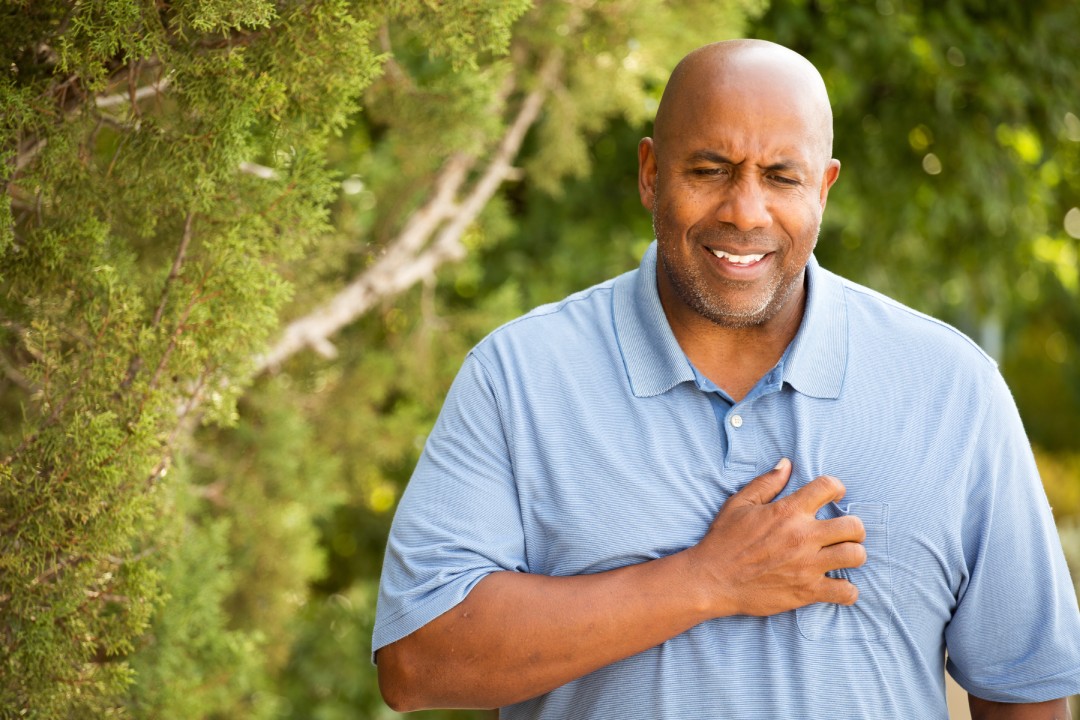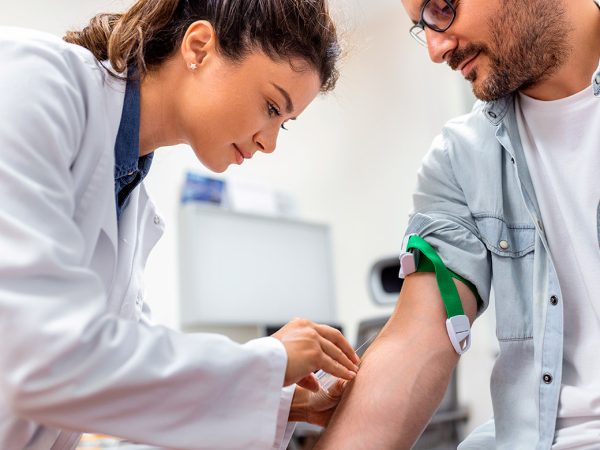What To Do When You Have Chest Pain
Up to a quarter of all Americans will experience chest pain at some point in their lives. However, as common as it is, it’s still so poorly understood.
Thanks to movies, when most people experience chest pain they all jump to one conclusion – heart attack. Of course, chest pain is one of the classic signs of a myocardial infarction (MI) or heart attack, but it’s not the only condition that causes chest pain. There are several possible causes for chest pain, some more serious than others, and it’s important to understand them so that you can make an informed choice about whether you can remedy the cause on your own at home or if you need to seek medical assistance.
Let’s go over what chest pain is, what could be causing it, when to seek professional help, what you can expect in a medical setting, and any preventative measures you can take to lower your chances of getting in the first place.

The Basics Of Chest Pain
Chest pain can be a concerning and potentially serious symptom that should not be ignored. It can be defined as a range of sensations, from a sharp, stabbing ache to a dull, persistent discomfort, anywhere between the upper abdomen and the base of the neck. The type of pain can vary greatly – it may feel like a burning sensation, a crushing pressure, or a tightness that radiates across the chest area.
The duration, severity, and other symptoms can provide valuable clues about the underlying cause. For instance, a sudden, severe chest pain accompanied by shortness of breath, sweating, or nausea may indicate a heart attack, while a burning sensation that worsens after meals could point to acid reflux.
When To Call Emergency Services
Chest pain that is severe or accompanied by certain alarming symptoms should be treated as a medical emergency. If you experience intense chest discomfort with symptoms like pain radiating down your arm or up into your jaw, sudden shortness of breath, lightheadedness or dizziness, or a cold, clammy sweat, do not hesitate – call emergency services immediately. These warning signs could indicate a heart attack or another potentially life-threatening condition, such as an aortic dissection or a pulmonary embolism.
If this happens to you, it’s very important to remain calm and avoid any strenuous physical activity that could further strain your heart or cardiovascular system. Find a comfortable position, whether sitting or lying down and wait for emergency medical personnel to arrive. While you’re waiting, try your best to relax and take slow, deep breaths, as anxiety can exacerbate symptoms.
When To See A Doctor For Chest Pain
Persistent chest pain, even if it’s not severe, shouldn’t be ignored or brushed aside. It may not feel like a medical emergency, but chronic or recurring bouts of chest discomfort could be an indication of an underlying condition that requires proper medical evaluation and treatment.
If you find yourself experiencing chest pain that lingers or keeps coming back, it’s wise to make an appointment with your doctor as soon as possible. Don’t wait for the pain to become severe or debilitating before seeking medical advice. Even mild or moderate chest pain that persists or recurs could be a symptom of a potentially serious issue, such as coronary artery disease, a lung condition, or a gastrointestinal problem.

When To Help Yourself
When dealing with non-severe and well-diagnosed causes of chest pain, such as heartburn or acid reflux, simple home remedies can sometimes provide relief. However, it’s essential to exercise caution and ensure that any self-care measures are done under the supervision of your family doctor.
Relying solely on home remedies without proper medical supervision can potentially mask or worsen an underlying condition.
Your healthcare provider has a comprehensive understanding of your medical history, current health status, and any potential interactions with other medications or treatments you may be undergoing. They are the most qualified person to recommend safe and appropriate remedies tailored to your specific needs.
It’s important to avoid self-medicating or experimenting with home remedies without first consulting your doctor, as this could inadvertently exacerbate the chest pain or lead to unintended consequences. Some remedies, even seemingly harmless ones, may interact negatively with existing medical conditions or prescribed medications.
What Can You Do To Avoid Chest Pain?
Preventing chest pain begins with adopting a healthy lifestyle. Eating a balanced diet, exercising regularly, avoiding tobacco, and managing stress are all crucial steps. Regular check-ups are also essential for early detection and prevention of potential health issues.
Kuye Medical Group is more than equipped to help you diagnose and treat any causes of chest pain, whether minor or severe. If you have chronic ongoing chest pain and would like to know what the underlying cause is, contact us today for an appointment.






